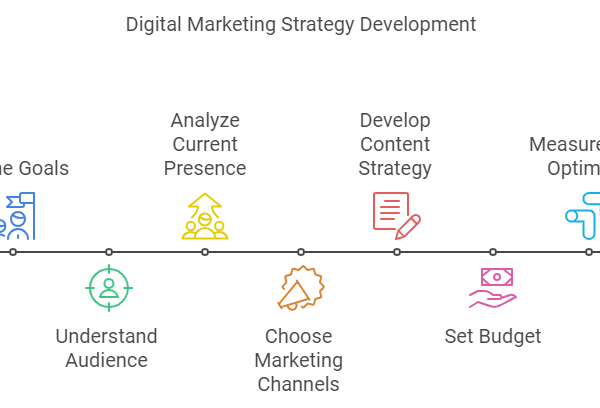
In the bustling world of early childhood education, one fundamental aspect often takes center stage: play. From building block towers to imaginative role-playing, play is not merely a pastime for young children but a crucial component of their learning and development. In this article, we delve into the significance of play in early childhood schooling, exploring its multifaceted benefits and how it fosters holistic growth in young learners.
Defining Play in Early Childhood Education:
Before we delve into its importance, it’s essential to understand what constitutes play in the context of early childhood education. Play is not limited to structured activities or formal lessons but encompasses a broad spectrum of spontaneous, self-directed, and imaginative activities that children engage in willingly. Whether it’s exploring sensory materials, engaging in pretend play, or collaborating with peers, play allows children to make sense of the world around them, experiment with ideas, and express their creativity.
Promoting Physical Development:
One of the most apparent benefits of play in early childhood schooling is its role in promoting physical development. Engaging in active play, such as running, jumping, climbing, and balancing, helps children develop gross motor skills, coordination, and spatial awareness. Activities like playing with balls, riding tricycles, or navigating obstacle courses not only build physical strength but also enhance agility and proprioception.
Moreover, sensory play activities, such as digging in sand or exploring water tables, stimulate the senses and promote fine motor skills development. Through tactile exploration, children refine their hand-eye coordination, manipulate objects, and develop a deeper understanding of texture, shape, and spatial relationships.
Fostering Social and Emotional Growth:
Play serves as a powerful tool for fostering social and emotional development in young children. When children engage in cooperative play scenarios, such as building structures together or participating in dramatic play, they learn valuable lessons in communication, collaboration, and conflict resolution. Through negotiation and compromise, children develop essential social skills that lay the foundation for positive peer interactions and relationships.
Furthermore, imaginative play allows children to explore and express their emotions in a safe and supportive environment. Whether they’re role-playing everyday scenarios or acting out fantastical adventures, children develop empathy, self-awareness, and emotional regulation skills. Pretend play also enables children to experiment with different roles and perspectives, fostering creativity and flexible thinking.
Supporting Cognitive Growth and Learning:
In addition to its social and emotional benefits, play plays a crucial role in supporting cognitive growth and learning in early childhood schooling. Through play-based activities, children engage in hands-on exploration, problem-solving, and critical thinking. For example, when children build with blocks or construct elaborate structures, they’re not just stacking bricks—they’re experimenting with spatial relationships, engineering principles, and cause-and-effect concepts.
Furthermore, imaginative play stimulates cognitive development by encouraging children to use their imagination, creativity, and storytelling skills. Whether they’re playing house, pretending to be superheroes, or embarking on imaginary adventures, children engage in complex narrative play that strengthens language development, vocabulary, and narrative comprehension.
Moreover, play provides opportunities for children to explore mathematical concepts such as sorting, categorizing, patterning, and counting. Whether they’re sorting objects by color, arranging blocks by size, or counting toy cars, children develop foundational math skills through hands-on, experiential learning.
Fostering a Love for Learning:
Perhaps one of the most profound impacts of play in early childhood schooling is its ability to foster a lifelong love for learning. When children are actively engaged in play-based learning experiences, they’re intrinsically motivated to explore, discover, and inquire about the world around them. Play ignites children’s curiosity, sparks their imagination, and cultivates a sense of wonder and awe.
Moreover, play-based learning experiences are inherently joyful and enjoyable, creating positive associations with learning and schooling. Whether children are exploring nature in an outdoor classroom, conducting experiments in a science center, or engaging in dramatic play in a pretend kitchen, they’re actively involved in their learning process, which enhances motivation, engagement, and retention.
Furthermore, play promotes a sense of autonomy and agency in children, empowering them to take ownership of their learning journey. When children have the freedom to follow their interests, make choices, and pursue their passions, they develop a sense of confidence, self-efficacy, and intrinsic motivation that fuels their thirst for knowledge.
Building Resilience and Adaptability:
In addition to its cognitive and emotional benefits, play helps children develop essential life skills such as resilience, adaptability, and problem-solving. When children encounter challenges or setbacks during play, whether it’s a tower collapsing or a disagreement with a peer, they learn to persevere, problem-solve, and bounce back from adversity.
Moreover, play provides opportunities for children to practice flexible thinking and adapt to new situations and environments. Whether they’re navigating a complex social scenario, experimenting with different materials, or improvising during imaginative play, children develop agility, creativity, and resourcefulness that are invaluable life skills.
Creating a Play-Friendly Environment:
Given the myriad benefits of play in early childhood schooling, creating a play-friendly environment is essential for supporting children’s holistic development. Here are some strategies for incorporating play into the early childhood classroom:
- Design flexible learning spaces that accommodate a variety of play-based activities, such as open-ended materials, cozy reading nooks, and designated areas for sensory exploration, imaginative play, and gross motor activities.
- Provide a diverse range of materials and resources that stimulate children’s curiosity and creativity, such as blocks, art supplies, natural materials, dramatic play props, and scientific tools.
- Foster a culture of playfulness and inquiry by encouraging children to explore, experiment, and take risks in their learning. Embrace a growth mindset that celebrates mistakes as opportunities for learning and growth.
- Facilitate opportunities for both child-initiated and teacher-guided play experiences, allowing children to follow their interests while also scaffolding their learning through intentional teaching strategies and provocations.
- Cultivate a sense of community and collaboration by promoting peer interactions, teamwork, and shared experiences. Encourage children to communicate, cooperate, and problem-solve together, fostering a sense of belonging and social connectedness.
Conclusion:
In conclusion, play is not just a leisure activity for young children—it’s a powerful vehicle for learning, growth, and development. From promoting physical skills and social-emotional competence to fostering cognitive growth and sparking a love for learning, play enriches every aspect of early childhood schooling. By embracing play-based approaches in early childhood education, educators can create nurturing environments where children thrive, flourish, and embark on a lifelong journey of discovery and exploration. As we celebrate the importance of play in early childhood schooling, let us recognize its transformative power in shaping the future leaders, innovators, and change-makers of tomorrow.











